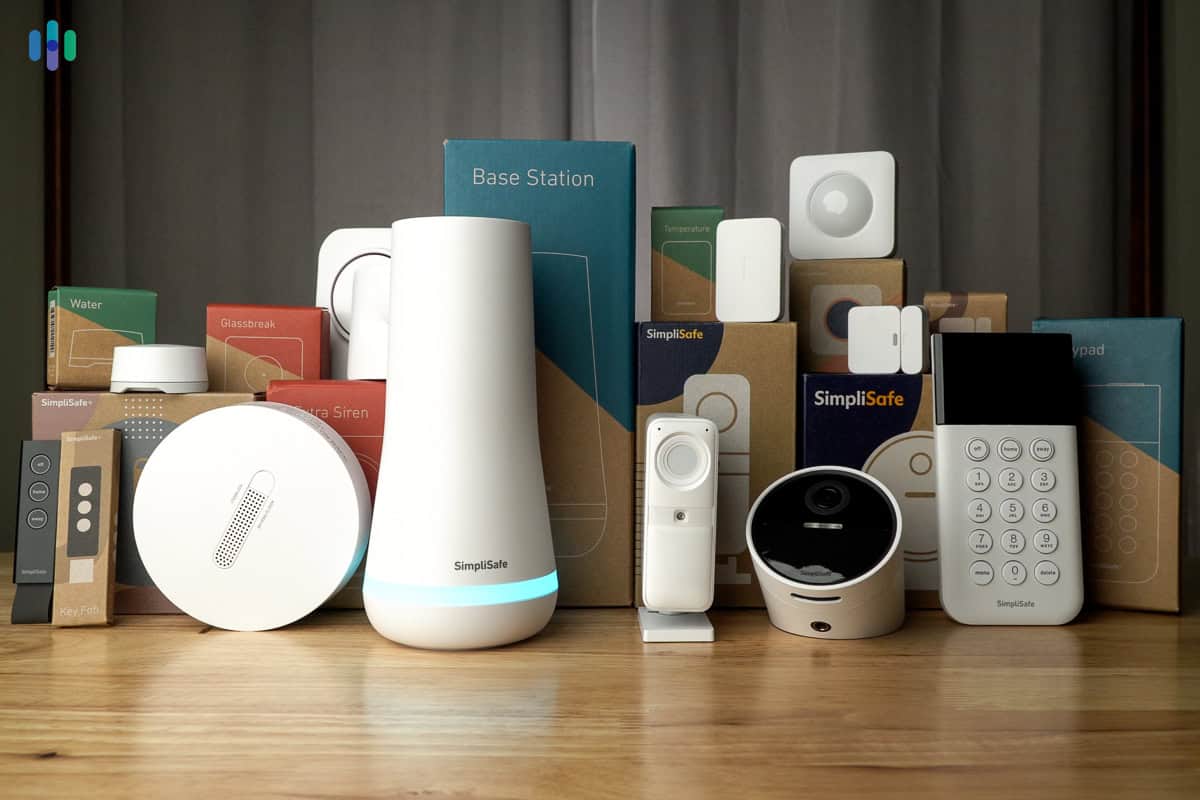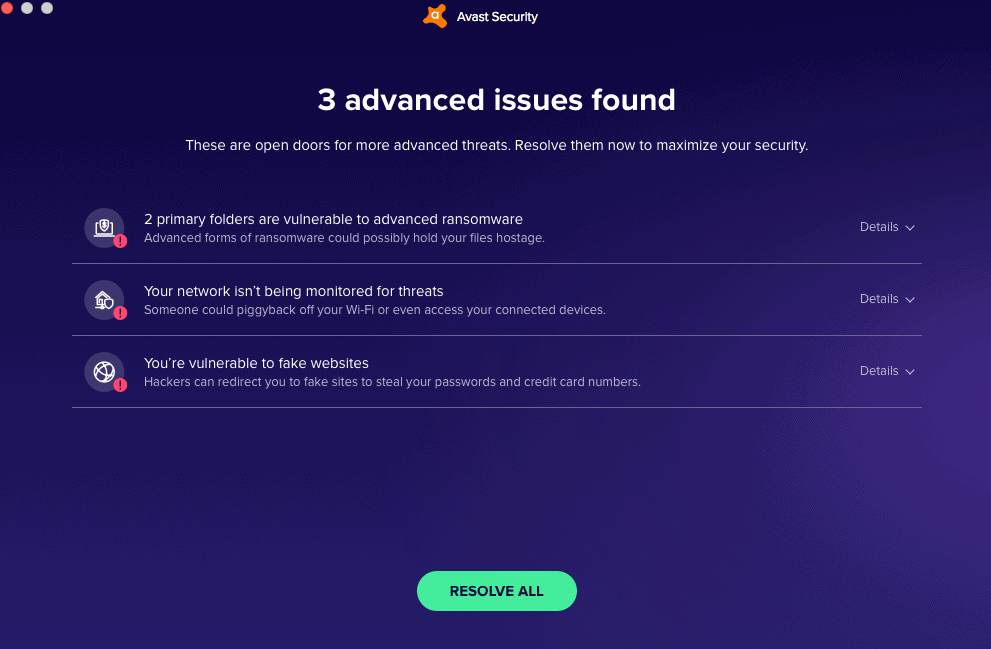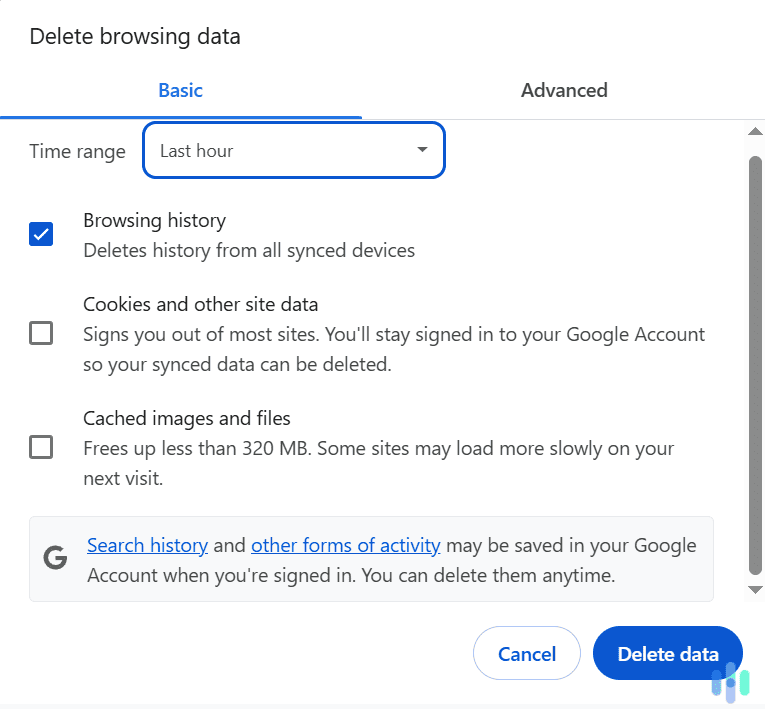You might have heard that VPNs help make you anonymous online, but just how private are they? Will they prevent people from seeing your browser history? Will they keep your information private from your employer? Can you ever really browse the internet with true anonymity?
I’ve spent years testing the best VPNs available today, and can say with confidence, yes, they will keep your activities private. But exactly how that works and how private you actually are is a little more nuanced. With that in mind, let’s explore how to increase your privacy online.
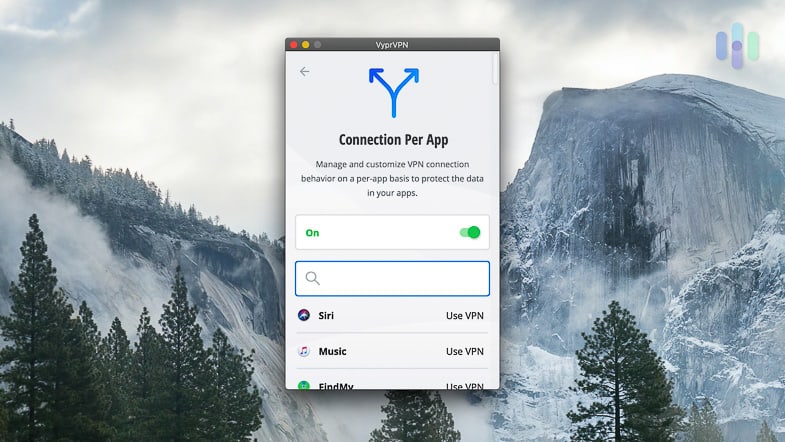
Looking to Hide Your Browsing History?
VPNs can hide your browsing history, but only to a certain extent. Choosing a VPN with the right features will ensure that your online activities remain private. So if you’re looking to hide your browsing history, consider surfing the internet using a tried-and-true VPN that we’ve tested, such as one of these:



How VPNs Hide Browsing Histories
To fully understand the importance of VPNs, we have to discuss what goes on when you browse the internet while connected to a VPN. VPNs are tools that work in the background, so while we don’t actually see what they’re doing, VPNs are actually working hard from behind the scenes to protect your online privacy. Here’s what they do.
How Browsing With VPNs Works
When you’re browsing without a VPN, your internet traffic passes through your router and internet service provider (ISP) before reaching the destination website. All three checkpoints (router, ISP, website) can see the traffic coming from your computer.
A VPN adds encryption and a VPN server to the process. Here’s how it goes:
- The VPN encrypts your internet traffic before it leaves your computer.
- The encrypted traffic passes through your router and ISP, but because it’s encrypted, neither of them can see its content.
- The VPN server decrypts the traffic and then sends it to the destination website, making it appear as though the traffic came from the server’s IP address instead of yours.
Using AT&T Internet? AT&T and other ISPs can see your activity unless you use a VPN. See our list of the Best VPNs for AT&T.
Can VPNs See My Browsing History?
Since the VPN server is the one that decrypts the encrypted traffic, it can see its contents. The more important question now is, “does it log your browsing history?” Many VPN companies promise not to keep logs, but having tested dozens of VPNs, we know that’s not always the case. VPNs will log at least some types of data, so before choosing a VPN, you should read the companies’ privacy policies to learn:
- What they log
- How they secure your data
- What they do with it
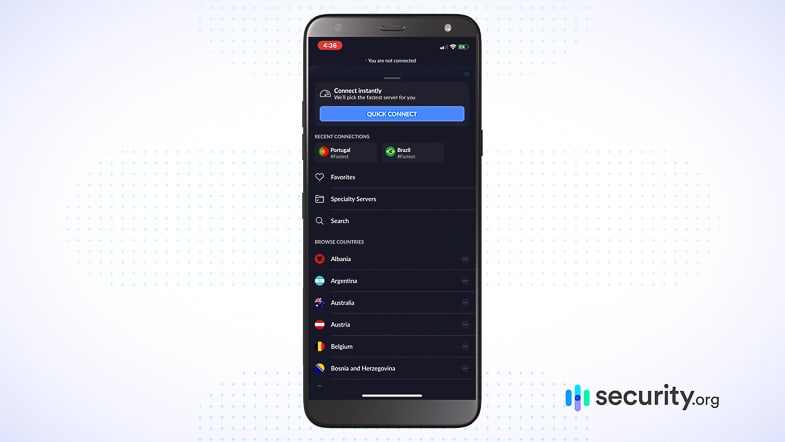
Word of Advice: In theory, all VPNs can see your online traffic when you connect to their VPN service. That’s why you should choose the VPN that you can trust the most based on its privacy policy and jurisdiction.
Do VPNs Hide My Browsing History From ISPs?
VPNs encrypt all internet traffic, effectively hiding your browsing history from your ISP. However, that doesn’t mean the ISP is blind to your activities. They may be able to tell that you’re connected to a VPN and for how long, based on the fact that the encrypted traffic is headed to an IP address of a VPN server. They can also see the size of incoming and outgoing traffic, but the important thing is that they can’t see the content. If your sole purpose is to hide your browsing history from your ISP, a VPN will do the trick.
Why Hide Your Browsing History From ISPs?
The answer is simple: ISPs can do all kinds of shady stuff to our data. They can use it to target us with ads, sell it to third parties, or turn it over to the government.1 What’s worse is that, because ISPs can store our online activity, hackers can breach their databases to obtain the data of millions of users. These kinds of attacks have happened before. While ISPs are doing what they can to prevent future breaches, there’s no guarantee that they won’t happen again.
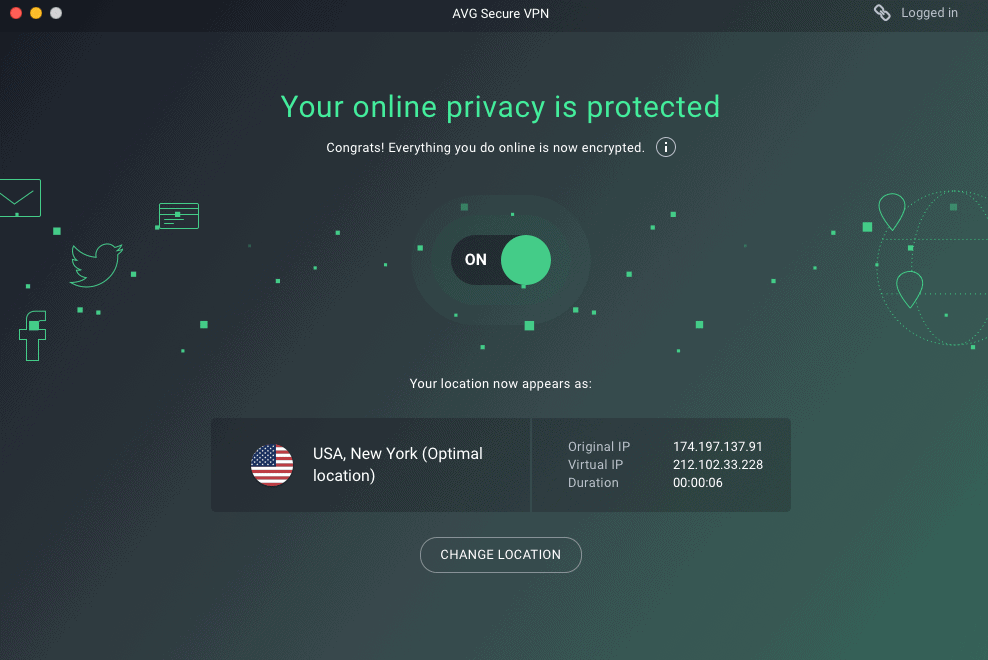
Do VPNs Hide My Browsing History From A Router?
Just like with ISPs, VPNs encrypt the internet traffic that passes through the router. Even those with network-level access can’t see what you’re doing online. VPNs also let you bypass your router’s firewall, allowing access to websites that your router has blocked. However, VPNs use certain transport protocols and ports when transmitting data. Network administrators can monitor these ports to check if anyone within the network is using a VPN. For instance, VPNs that use the IPsec protocol commonly use the UDP port 500, so network administrators can block this port to stop VPN traffic.2
How To Hide Your Browsing History From Your Employer
Sometimes, employers use their access to the router to see what their employees do online. If you don’t want to be tracked, there’s an easy fix: Get a VPN — if VPNs are allowed in your office, that is. As we mentioned above, there are ways to detect a VPN in a network, such as by monitoring networking ports, so you could get into trouble if VPNs are not allowed.
Another solution, which works even if VPNs are not allowed in your office, is to use your mobile data to browse. Employers can track what you’re doing over the office network, but not when you’re on mobile data. Of course, you could get in trouble for being on your phone, but that’s another story.
Do VPNs Hide My Browsing History From Google?
Yes, VPNs hide your browsing history from Google, but only partially. Google doesn’t see your real IP address when you’re connected to a VPN, so personalized search results tied to your IP address will not appear. However, that’s not the only way Google identifies users. For instance, your search history is tied to your Google account, so if your browser is logged on, Google can still see your browsing history. Google also uses complex algorithms and techniques to identify its users, whether for advertising, analytics, or personalizing search results.3 With these algorithms, it’s still possible for Google to identify you based on your search patterns, timing, and other metrics.
>> Next Steps: Data removal services like Optery can help remove your data from Google
Did You Know: While most internet users perform searches through Google, there are more privacy-focused search engines that don’t collect as much data as Google, such as the DuckDuckGo, Ecosia, and Tor (Onion) search engines. Consider using those if you want more privacy.
Does Private Browsing Help?
Private browsing goes by many names, depending on the browser type:
- Chrome: Incognito
- Safari: Private Browsing
- Internet Explorer / Edge: InPrivate
- Firefox: Private Window
- Opera: Private Mode
Basically, private browsing prevents your browser from storing local data like cookies, trackers, search history, and browsing history. What it doesn’t do is hide your internet activity from your ISP, router, and websites. So, while private browsing helps increase your privacy, we recommend using it with a VPN.
Pro Tip: Learn how to clear your Youtube history with our step-by-step guide.
Do VPNs Hide My Search History?
Your search history, as in the websites you’ve visited and your previous search queries, is stored locally in your browser. Anyone who can access your computer can see your search history, and there’s nothing a VPN can do about that. This means that if you want to hide your search history, the best solutions are to clear your browser’s history manually and to use private browsing.
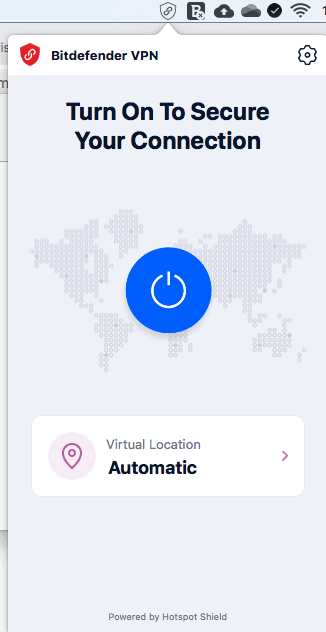
How To Hide Your Browsing History
VPNs will do little to hide your browsing history from others who have access to your computer. To prevent them from seeing what you’ve been up to online, there are a few steps you can take:
Hide Your Browsing History
- Browse privately. Private browsing keeps your browser from remembering your sessions, so it’s great for hiding your browsing history from roommates or anyone who can access your physical devices.
- Cover your tracks. Manually deleting your search and browsing history from your browser is another way to prevent tracking by people with physical access to your devices.
- Change search engines. Privacy-focused search engines, such as DuckDuckGo, collect less data than Google, so they’re better suited for privacy-minded users.4
- Remove trackers. Removing local logs such as cookies makes it harder for websites and search engines to identify you.
- Change your DNS settings. Websites can use DNS requests to see which websites you’ve accessed. To avoid that, change your DNS server from the ISP’s default server to a public DNS server like Google Public DNS.5
- Use HTTPS Everywhere. Many websites are still not on HTTPS, which means they’re less secure.6 HTTPS Everywhere is a browser extension that automatically switches HTTP websites to HTTPS, hence the name.
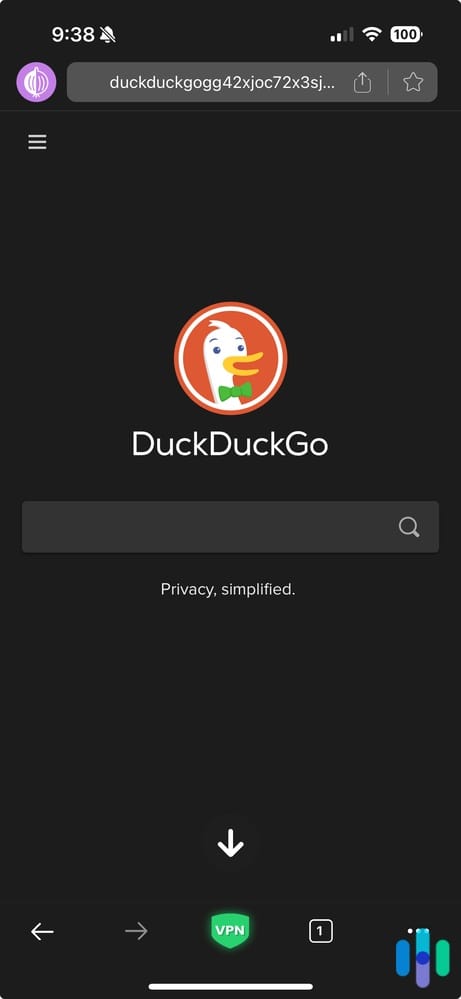
How To Test Your Online Security
It also helps to self-assess your online security every now and then to find out which areas need improvement. We’ve designed an online security quiz that will help you do just that. That test will help you assess your:
- Password management
- Browsing habits
- Social media privacy
- Online transaction security
- Virus protection
>> Related Reading: 1Password makes it easy to securely protect your passwords
What Else Does a Good VPN Hide?
If you’re looking for a good VPN to use, you should choose one that hides more than just your browsing history. Here are a few other things a good VPN should hide:
Browsing History
Just to recap what we discussed above, VPNs hide your browsing history from your router, ISP, and search engine by encrypting your internet traffic. The encryption takes place before the data leaves your device, and only the VPN server has the decryption key. Neither your router, ISP, or employers will see what you’re doing online.
IP Address
A VPN changes your IP address to a VPN server’s IP address. As a result, the VPN effectively hides your location and protects your personal information from hackers and malicious websites. There are other benefits of hiding your IP address as well, like giving you access to content unavailable to your original IP address’s location or hiding your torrenting activity from your peers.
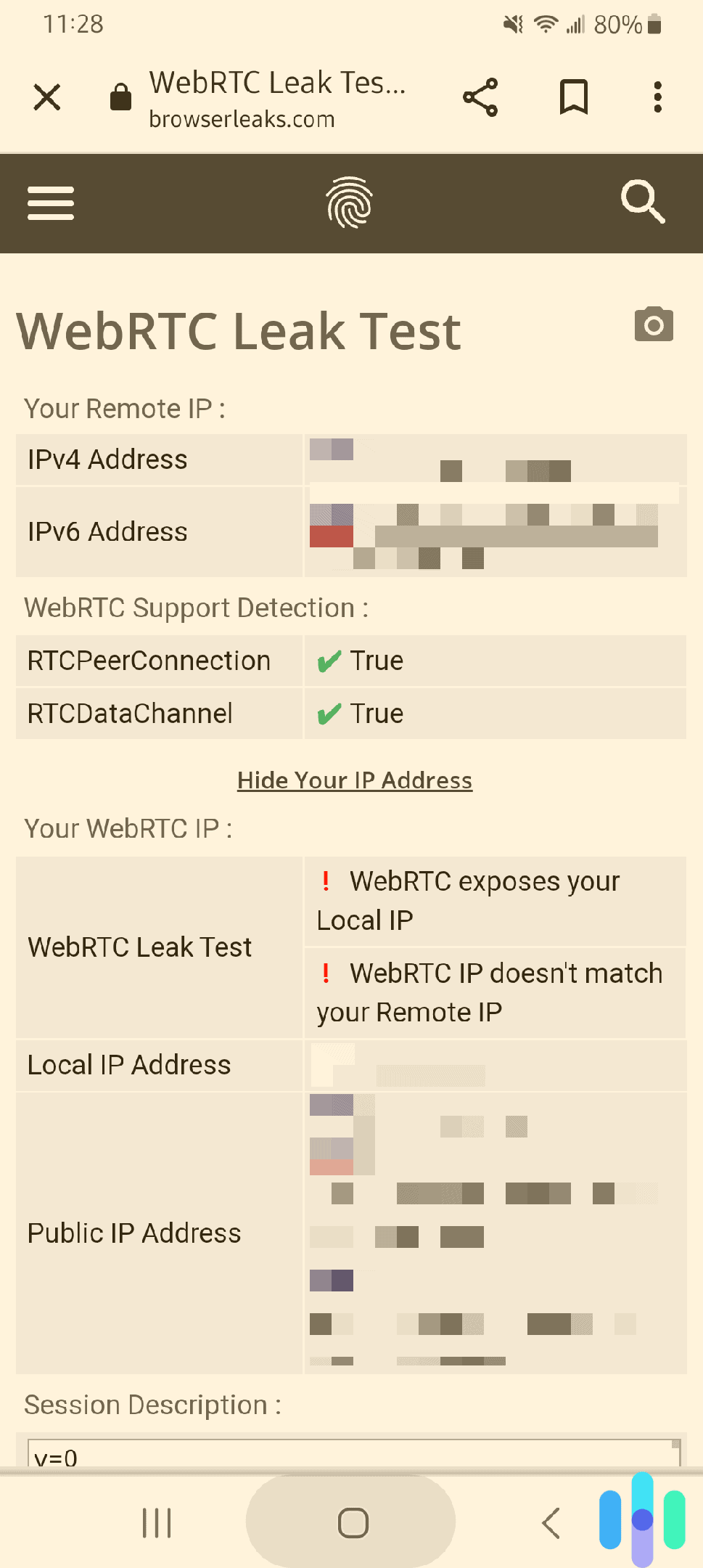
Online Identity
Websites use cookies to identify their visitors. When you visit a website, it stores cookies on your computer that allows it to “remember” you the next time you visit. Many VPNs block these cookies so websites can’t identify you, thus protecting your online identity. However, cookies also play a role in websites remembering your preferences. For instance, if you set a website to dark mode, it uses cookies to remember your settings for your next visit. For such cases, you could set your VPN to allow cookies and customize what types of cookies the website is allowed to use instead.
Personally Identifiable Information
Hackers don’t need to lurk on the internet to find targets. Sometimes, they sit in airport lobbies or coffee shops, looking for unprotected devices on public Wi-Fi networks. With a little know-how, they can intercept data sent over public Wi-Fis, like contact details, passwords, Social Security numbers, online banking credentials, and other personally identifiable information (PII). VPNs encrypt all internet traffic before they leave your device, so even if someone intercepts traffic that contains PII, they won’t be able to see the actual data.
Medical History
Hackers also commit insurance fraud by stealing online medical data and insurance credentials. VPNs can protect you against fraud by masking your IP address and encrypting your internet traffic. In doing so, VPNs keep your medical data hidden from anyone who might try to hijack it.
Travel Plans
Travel booking sites use IP addresses to identify site visitors so that they can lock in or jack up prices. For instance, if you look up deals on flights to Aruba, the site will note your IP address so that on your next visit, they can show you the more expensive deals instead of ongoing, possibly better offers. If you use a VPN, it hides your IP address so booking sites will have no way to alter their deals. Hello, Aruba!
» Learn about: VPNs best for traveling
Geolocation
Some VPNs have a feature called GPS spoofing. Aside from masking your IP address, which is tied to your physical location, VPNs hide your location from sites that might use your device’s GPS. When these sites try to retrieve your GPS location, the VPN sends them a different coordinate.
Torrenting
Ever received a warning letter from the government after downloading a file over BitTorrent? Torrenting is not illegal, but downloading copyrighted material over torrent networks could have consequences. Your ISP can actually see what you’re downloading, which means the government can as well. While we don’t encourage downloading illegal torrent files, we recommend using a VPN so that no one can see what you’re torrenting (legally). While you’re at it, check out the best VPNs for torrenting.
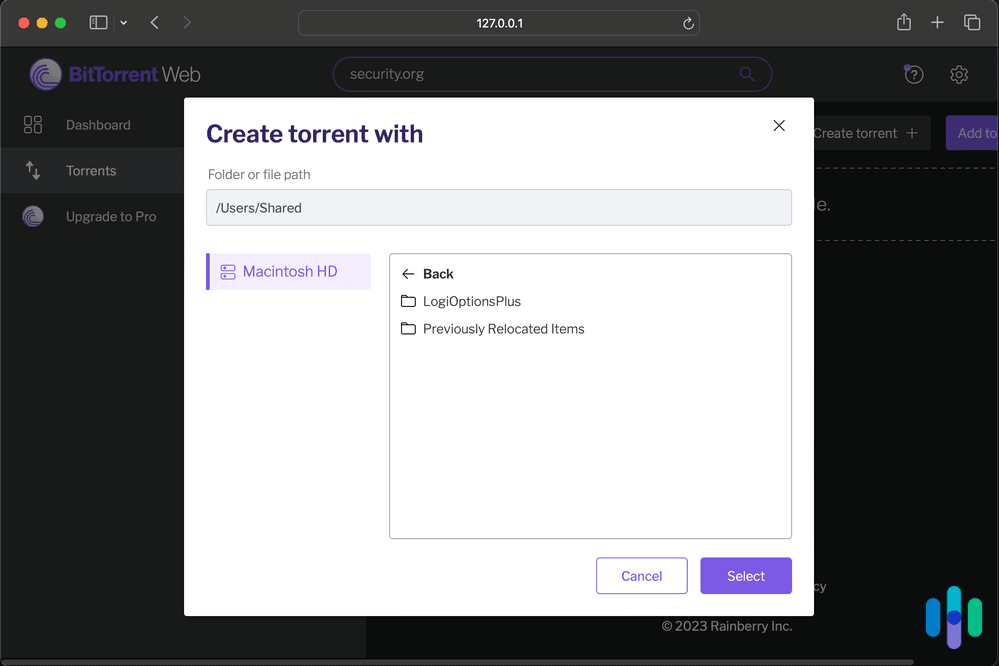
Itself
Lastly, a good VPN hides itself. When you connect to a VPN, ISPs, network administrators, search engines, and websites can see that you’re connected to a VPN. However, some VPNs offer VPN obfuscation, wherein they use various obfuscation techniques to hide the fact that they’re a VPN. One popular technique is routing VPN traffic through the TCP port 443, which is the same port through which HTTPS traffic passes. By doing so, VPNs make their traffic seem like regular HTTPS traffic.
What Is an IP Address?
You might notice that most of the things VPNs hide are connected to your IP address. So what is an IP address, really? Basically, it’s a unique series of numbers assigned to your device when you connect to the internet. The internet is like a virtual world where the World Wide Web is the country, your ISP is the state, your local network is the city, and your IP address is your street address. Everything you do online can be traced back to your IP address, and hackers can use your IP address to intercept data or send you malware. That is why hiding your IP address, one of the main tasks of a VPN, is so important.
Your private information
My IP Address
IP:
Loading…
Status:
Unprotected
My IP Information
Internet provider:
Loading…
City:
Loading…
Region/ State:
Loading…
Browser name:
Loading…
Browser version:
Loading…
Device brand:
Loading…
Device type:
Loading…
Latitude:
Loading…
Longitude:
Loading…
Postal code:
Loading…
» Further reading: IP Addresses: Dynamic vs Static
Limitations of VPNs
VPNs do a lot of good for our privacy, but they’re not perfect. There are things VPNs can’t and don’t do:
- VPNs can’t remove cookies already stored in your computer, so the websites where those cookies came from can still identify you unless you clear your browser’s cookies.
- VPNs can’t make you completely anonymous on the internet. For instance, logging in to your Google account exposes your identity to Google. If you want complete anonymity, use the Tor browser, which was made specifically for that purpose.7
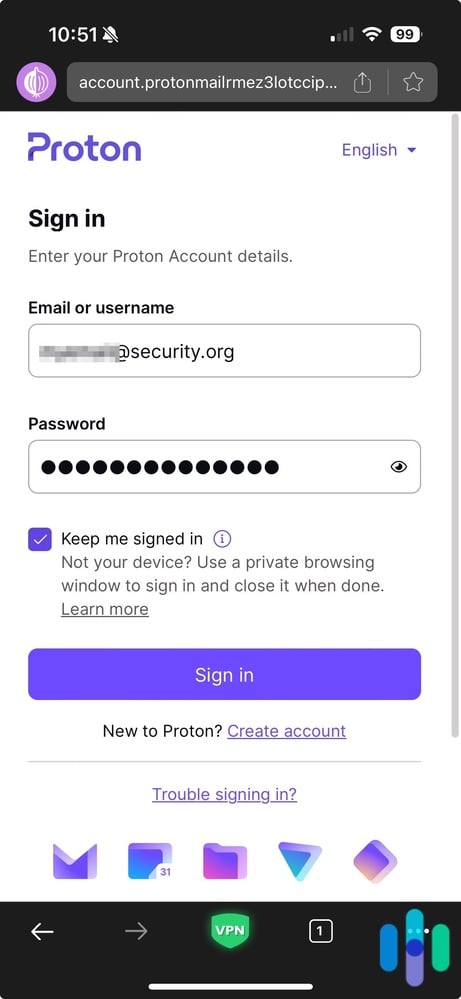
- VPNs can’t keep your computer virus-free if you visit virus-ridden websites or download malicious attachments; only antivirus software can do that.
How To Choose a VPN
Choosing a VPN is a personal decision, but there are certain factors to consider to make the choice a little bit easier.
- Cost: VPN prices across the market average around $10 per month, but there are cheap VPNs with monthly rates as low as $2 if you sign up for a year or longer. There are also free VPNs with considerable features if you really want to cut costs.
- Server count: More servers means more connections to choose from and less overcrowding of servers. Some VPNs have a server count in the thousands.
- Server locations: The location of the servers matter, whether you want to connect to the fastest server, which is usually the one closest to you, or unblock content that is only viewable in certain countries.
- IP addresses: There are VPNs that use static IP addresses, which gives you the same IP address whenever you connect to the VPN, or dynamic IP addresses, which change every time. There are also VPNs with dedicated IP addresses that only you can use.
- Features: There are several features to look for in a VPN, such as a kill switch that halts all your device’s internet activity the moment the VPN disconnects. There’s also split tunneling, which allows the simultaneous use of private (VPN) and public networks.
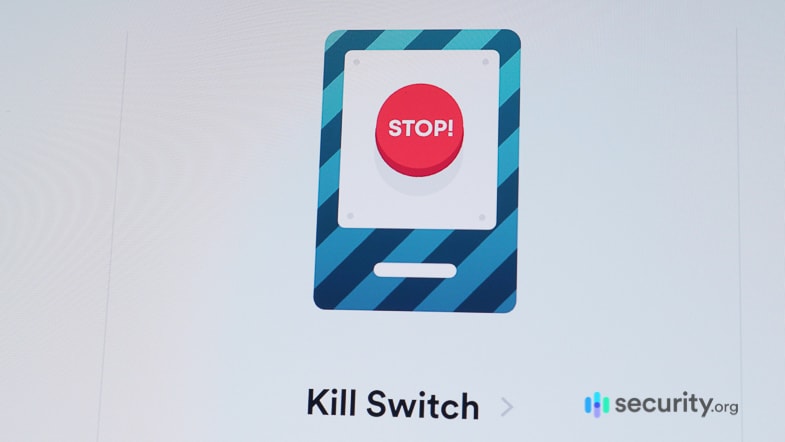
- Streaming access: VPNs and streaming platforms like Netflix have bad blood, but that doesn’t mean that all VPNs are blocked. You can still binge content from Netflix and other streaming sites with a good VPN for streaming.
- Torrenting: Not all VPNs allow peer-to-peer file sharing, so if you’re heavy into torrenting, you should get a VPN that allows torrent downloads. See our guide on on using a VPN for torrenting.
- Privacy policy: Almost all VPNs log data about their users, but some keep more information than others. To maintain your privacy, it’s best to read up on your VPN’s privacy policy.
- Encryption methods: VPNs protect their users’ privacy through encryption, so it’s only necessary to get a VPN with strong encryption no weaker than AES-256.
- WebRTC and DNS leaks: Despite masking your IP address, a VPN may inadvertently leak your browsing history via WebRTC or DNS leaks. Our review process includes testing for such leaks.
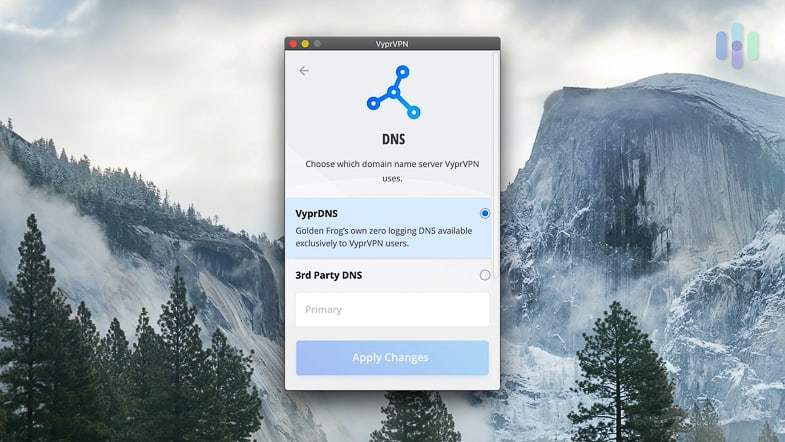
- Overall performance (speed, latency, etc.): Using a VPN may affect your browsing speed, latency, and overall network performance. While a number of factors may influence your network’s performance while you’re connected to a VPN, it’s still wise to choose a VPN with a solid track record.
- Refund policy: Buying an online service such as a VPN is always going to be risky, but a 30-day or longer money-back guarantee makes buying a VPN a little less risky.
- Company location: Jurisdictions can complicate a VPN company’s data privacy policies. For example, companies in countries that are members of the Five Eyes, Nine Eyes, or 14 Eyes Alliance are legally required to share customer data with the government when asked.
- Company history: The past is the past, but it doesn’t hurt to check a company’s history before entrusting your browsing data to them. We usually check for things such as breaches, controversies involving the company, and how they handled such things.
Types of VPNs
There are a few different flavors of VPN you should be aware of. The most common is remote access, but there are a handful of others as well. Here are the three types of VPNs:
- Remote access: Remote access VPNs connect your computer to a remote server, creating a virtual private tunnel. This type of VPN is best for personal use.
- Site-to-site: Site-to-site VPNs create a private tunnel between two local networks, each acting as a VPN server for the other. This type of VPN is best for businesses with multiple offices.
- Client-to-provider: This is similar to a remote access VPN, but instead of connecting you to a VPN server through your ISP, it connects you directly to the VPN provider. This eliminates the need to create a virtual tunnel, as the data the VPN provides is already encrypted. Providers of public Wi-Fi typically use this type of VPN.
Recap
While VPNs do a good job of hiding our browsing history, it’s still our job to protect our online privacy. Sure, VPNs can hide our browsing history from ISPs and search engines, but there are many other ways hackers can steal data. We have tons of security resources on how to increase privacy, prevent identity theft, and increase awareness on prevalent cyber crimes and scams, so be sure to check those out.
FAQs
There’s wisdom in asking questions, so let’s answer the most frequently asked questions about VPNs and browsing history.
-
Can VPNs hide my browsing data from my ISP?
VPNs can hide your browsing data from your ISP by encrypting your internet traffic before it leaves your computer.
-
What does a VPN hide?
A VPN hides your internet traffic by encrypting it, masking your real IP address, and protecting your personal data from hackers.
-
Can a VPN hide my search history?
A VPN can’t hide your browser’s search history or prevent your browser from logging it. If you want to hide your search history, you can manually delete it from your browser or use private browsing, although that will only hide it locally.
-
Does private browsing work?
Private browsing works by stopping your browser from storing cookies, trackers, search data, and browsing data, but it doesn’t hide your browsing history from your ISP.




